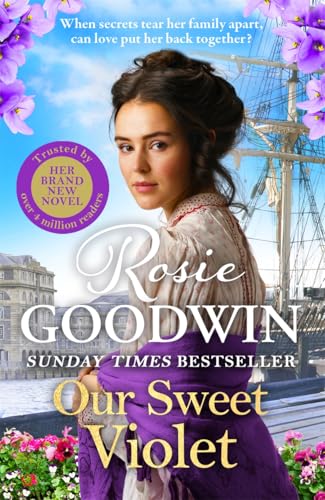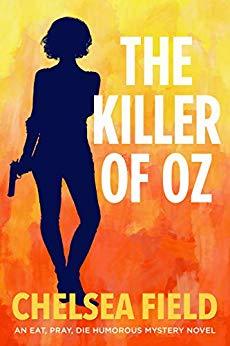Violet and Edie set out on their own to run a café by the docks and life, while humble, starts to settle down. Perhaps, Violet may find happiness again and even . . . love? But when Violet's brother, Oliver, comes back on the scene, chaos follows at every turn, and while walking home alone one night, something unthinkable happens. With her contented existence and her chance at true love under threat, Violet must summon all the strength she has to put her life back together. Will she ever find the peace that she so desperately desires?
Comment: I was given this book for my birthday but until then I confess I had never heard of the author, which might seem strange since she is certainly prolific.
In this story we meet Violet, a sweet natured girl, whose live changes after the death of her beloved father. Her mother Anne has never been caring towards her, only for Oliver, her brother. To make things worse, their house was actually rented and they have to leave, which means her mother sends her away, without any place to stay. Thankfully, she has Edie, their cook, who promises to help and they even find a way to start their own business which suits them both well. Violet also meets people who cheer her up but she keeps worried for her brother, whom she idolizes although he has never been a good person. But when her life has yet another change, Oliver comes back and the unthinkable happens. Will there be any happy end for Violet?
To be fair, this book has a good enough base, extremely predictable yes, but with talent and ingeniousness any good writer could develop it in any way/genre. My problem with it is that I simply disliked the author's style and found it to be almost juvenile.
I do feel bad about this, after all it was a gift and I never want to have to tell those who give me books that I didn't like them,even knowing it's not their fault (it works both ways; I love to give books and sometimes they might not suit the person as I imagined, obviously) but this one really failed. I mean, it's clearly an easy book to read, it has some interesting scenes and situations but it's written in a very simplistic way and the characters are extremely under developed.
I think that the author probably had many ideas and decided to use them all. Reading some comments on this book and of others by her, it seems many readers who didn't give the books high grades mentioned how repetitive and similar the plots are, or at least the themes. I suppose I can see how that might happen but then the story feels very superficial and filled with cliches. This makes the reading experience feel less good and for my personal taste, things didn't work out.
Violet is a sweet girl of 16 or 17, I can't be certain, when the story begins and she never stops being this young and sheltered, in any of her interactions with others, even when hardship and disappointment happen. Yes, she is sweet but lacks sense and is incredibly TSTL, nothing makes her see what's in front of her and I admit I often lost patience with her and skipped some passages. All characters are only readable at a superficial level, which means I never felt the emotional investment to really care, and even the villains were characterized very thinly, making some of their actions seem trivial.
Then, there's the plot. Many terrible things happen to Violet and then many good ones too, a very ridiculous mix that for me had poor results. Violet is sent away from her home, then her cook happens to help her. They start a business but them gangs threaten to break stuff if they don't pay. Violet meets a good man but then thinks he is engaged. They need help when things go well but then the help starts being ill. Then her horrid brother starts manipulating her to give him money., then several other things that only cause her worry. Then this and that, but thankfully Violet has an aunt, never mentioned before but who leaves her a house and an inheritance, then.... and so on and on...










